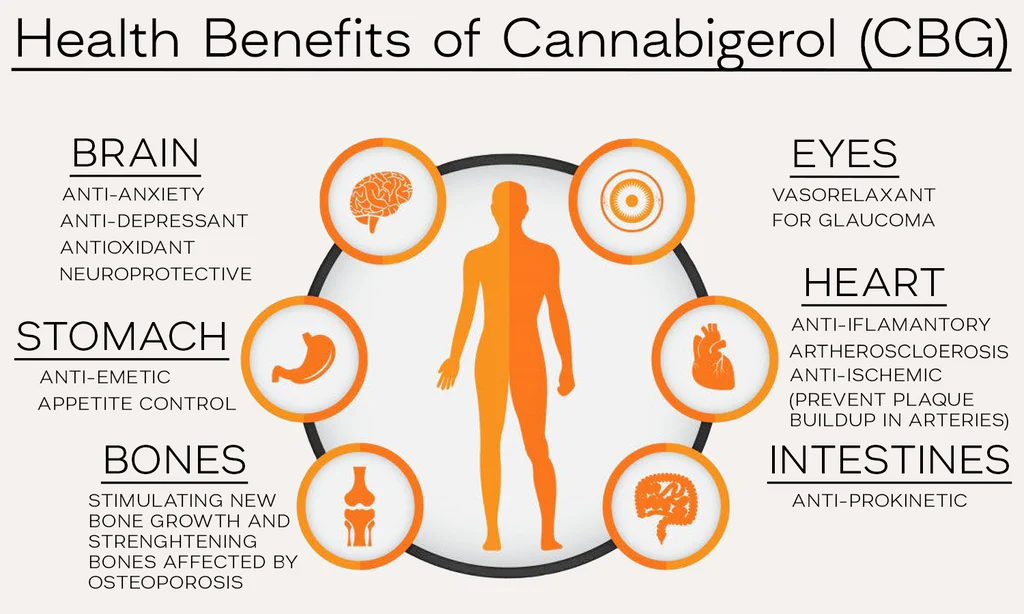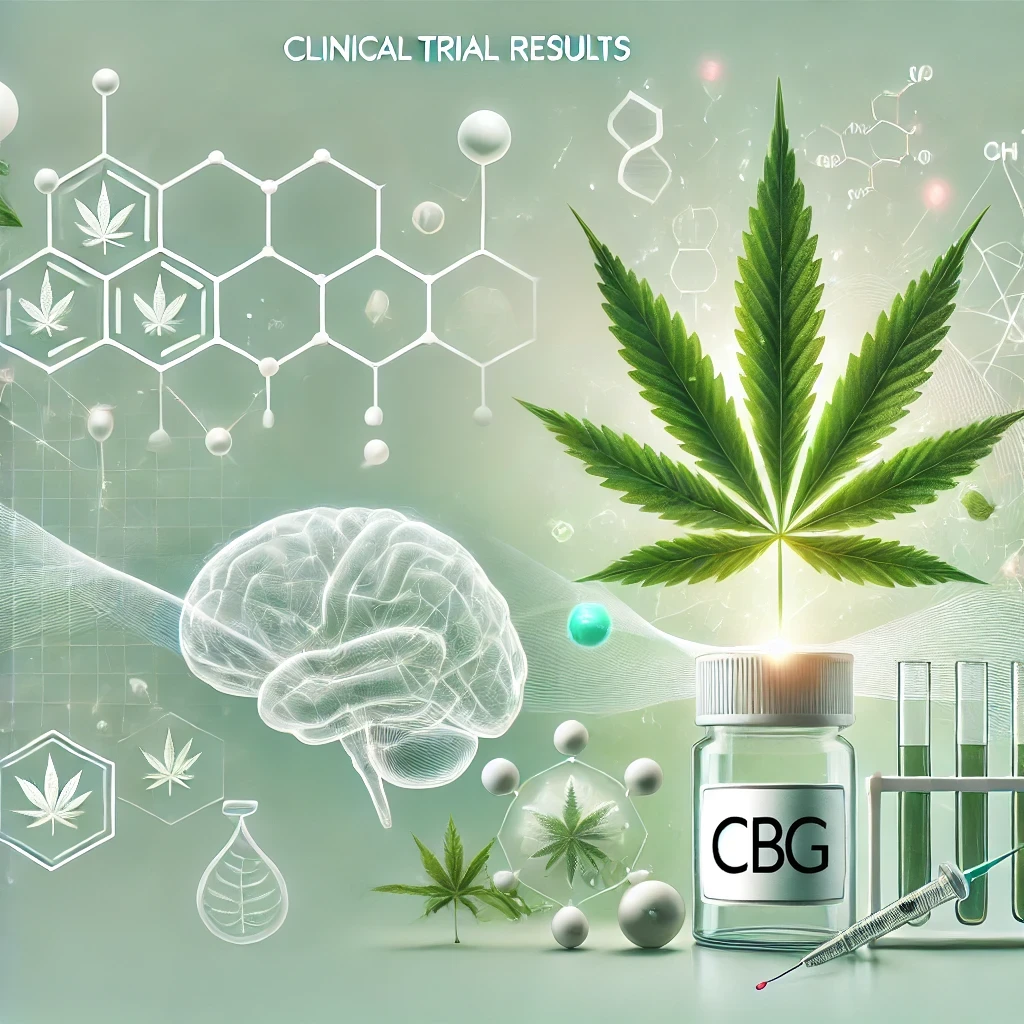In the ever-evolving landscape of cannabinoid research, a groundbreaking clinical trial has shed new light on the potential benefits of Cannabigerol (CBG). This lesser-known cannabinoid is quickly gaining attention in the medical community for its promising effects on emotional well-being and cognitive function. As a leader in cannabinoid-based pharmaceuticals, we are excited to share these new developments with you.
Recent Regulatory Changes
On August 5, 2023, a decree came into effect that classified CBD as a narcotic substance in Italy, effectively prohibiting products intended for internal consumption. While the decree ostensibly exempts CBD cosmetics, subsequent circulars issued by the Ministry of Health to medical, pharmacist, and veterinary associations have created ambiguity regarding the status of these products.
The Landmark Study
A collaborative research team from Washington State University (WSU) and the University of California, Los Angeles (UCLA) has conducted what they claim to be the first clinical trial of CBG. Their findings, published in the prestigious journal Scientific Reports, suggest that CBG may have significant potential in reducing emotional discomfort and enhancing memory. This double-blind, placebo-controlled trial involved 34 cannabis users and utilized innovative remote research methods, including Zoom sessions and mailed CBG tinctures.
Key Findings
1 – Emotional Comfort: Participants who received a 20mg dose of CBG reported a significant reduction in anxiety at 20, 45, and 60 minutes after ingestion. This rapid onset of effects is particularly noteworthy and could have important implications for acute anxiety management.
2 – Memory Enhancement: In a surprising turn of events, CBG appeared to improve memory recall. Subjects who received CBG were able to remember more words from a pre-exposure list compared to the control group. This unexpected finding opens up new avenues for research into CBG’s potential cognitive benefits.
3 – Minimal Side Effects: Unlike THC, CBG did not produce cognitive or motor impairments. Participants reported low intoxication ratings and minimal changes in common cannabis-related side effects such as dry mouth, sleepiness, heart palpitations, and increased appetite. This favorable side effect profile could make CBG an attractive option for those seeking the benefits of cannabinoids without the psychoactive effects associated with THC.

Implications for Medical Use
These findings align with previous survey data indicating that 51% of CBG users consume the substance to decrease anxiety, with 78% suggesting it may be more effective than conventional anxiety medications. This opens up exciting possibilities for CBG as a potential alternative or complementary treatment for anxiety disorders.
The memory-enhancing effects of CBG are particularly intriguing. While further research is needed, this property could potentially lead to applications in cognitive health and memory-related conditions. It’s worth noting that this effect contrasts sharply with THC, which is known to impair short-term memory.
Understanding CBG
CBG, often referred to as the “mother” or “stem cell” of cannabinoids, is a non-psychoactive compound found in cannabis plants. It’s a precursor from which other cannabinoids are synthesized, including THC and CBD. Despite its importance, CBG is typically present in low concentrations in most cannabis strains, making it more challenging and expensive to produce than CBD or THC.
Previous non-clinical studies have suggested that CBG may have a wide range of potential therapeutic applications. These include possible benefits for glaucoma, inflammatory bowel disease, Huntington’s disease, and even certain types of cancer. CBG has also shown promise in fighting bacterial infections and promoting bone growth.
Looking Ahead
While these results are promising, it’s important to approach them with measured optimism. Dr. Carrie Cuttler, the lead researcher, emphasizes the need for replication and further studies. “We need to avoid claims that CBG is a miracle drug,” she states. “It’s new and exciting, but more research is crucial.”
As with any emerging treatment, it’s essential to conduct thorough, long-term studies to fully understand the effects, optimal dosages, and potential interactions of CBG.
The research team is already planning follow-up studies to replicate these findings and expand their scope. Future trials will include physiological measures such as heart rate, blood pressure, and cortisol levels, and will extend to non-cannabis users as well. This comprehensive approach will help build a more complete picture of CBG’s effects on both regular cannabis users and those new to cannabinoids.
As a leading pharmaceutical company in the cannabinoid space, we are excited about the potential of CBG in medical applications. While more research is needed, these initial clinical results are highly encouraging. They underscore the importance of continued investigation into the diverse cannabinoids found in the cannabis plant, each of which may hold unique therapeutic potential.
The combination of anxiety-reducing and memory-enhancing effects, coupled with a favorable side effect profile, makes CBG a particularly interesting candidate for future pharmaceutical development. As research progresses, we may see CBG-based treatments emerging for a variety of conditions, potentially offering new options for patients who have not found success with traditional medications.
Stay tuned for more updates as we continue to follow the latest developments in cannabinoid research and their implications for medical treatments. Our commitment to advancing the field of cannabinoid medicine remains steadfast, and we look forward to sharing more exciting discoveries in the future.
In the ever-evolving landscape of cannabinoid research, a groundbreaking clinical trial has shed new light on the potential benefits of Cannabigerol (CBG). This lesser-known cannabinoid is quickly gaining attention in the medical community for its promising effects on emotional well-being and cognitive function. As a leader in cannabinoid-based pharmaceuticals, we are excited to share these new developments with you.
The Landmark Study
A collaborative research team from Washington State University (WSU) and the University of California, Los Angeles (UCLA) has conducted what they claim to be the first clinical trial of CBG. Their findings, published in the prestigious journal Scientific Reports, suggest that CBG may have significant potential in reducing emotional discomfort and enhancing memory. This double-blind, placebo-controlled trial involved 34 cannabis users and utilized innovative remote research methods, including Zoom sessions and mailed CBG tinctures.
Key Findings
1 – Emotional Comfort: Participants who received a 20mg dose of CBG reported a significant reduction in anxiety at 20, 45, and 60 minutes after ingestion. This rapid onset of effects is particularly noteworthy and could have important implications for acute anxiety management.
2 – Memory Enhancement: In a surprising turn of events, CBG appeared to improve memory recall. Subjects who received CBG were able to remember more words from a pre-exposure list compared to the control group. This unexpected finding opens up new avenues for research into CBG’s potential cognitive benefits.
3 – Minimal Side Effects: Unlike THC, CBG did not produce cognitive or motor impairments. Participants reported low intoxication ratings and minimal changes in common cannabis-related side effects such as dry mouth, sleepiness, heart palpitations, and increased appetite. This favorable side effect profile could make CBG an attractive option for those seeking the benefits of cannabinoids without the psychoactive effects associated with THC.

Implications for Medical Use
These findings align with previous survey data indicating that 51% of CBG users consume the substance to decrease anxiety, with 78% suggesting it may be more effective than conventional anxiety medications. This opens up exciting possibilities for CBG as a potential alternative or complementary treatment for anxiety disorders.
The memory-enhancing effects of CBG are particularly intriguing. While further research is needed, this property could potentially lead to applications in cognitive health and memory-related conditions. It’s worth noting that this effect contrasts sharply with THC, which is known to impair short-term memory.
Understanding CBG
CBG, often referred to as the “mother” or “stem cell” of cannabinoids, is a non-psychoactive compound found in cannabis plants. It’s a precursor from which other cannabinoids are synthesized, including THC and CBD. Despite its importance, CBG is typically present in low concentrations in most cannabis strains, making it more challenging and expensive to produce than CBD or THC.
Previous non-clinical studies have suggested that CBG may have a wide range of potential therapeutic applications. These include possible benefits for glaucoma, inflammatory bowel disease, Huntington’s disease, and even certain types of cancer. CBG has also shown promise in fighting bacterial infections and promoting bone growth.
Looking Ahead
While these results are promising, it’s important to approach them with measured optimism. Dr. Carrie Cuttler, the lead researcher, emphasizes the need for replication and further studies. “We need to avoid claims that CBG is a miracle drug,” she states. “It’s new and exciting, but more research is crucial.”
As with any emerging treatment, it’s essential to conduct thorough, long-term studies to fully understand the effects, optimal dosages, and potential interactions of CBG.
As a leading pharmaceutical company in the cannabinoid space, we are excited about the potential of CBG in medical applications. While more research is needed, these initial clinical results are highly encouraging. They underscore the importance of continued investigation into the diverse cannabinoids found in the cannabis plant, each of which may hold unique therapeutic potential.
The combination of anxiety-reducing and memory-enhancing effects, coupled with a favorable side effect profile, makes CBG a particularly interesting candidate for future pharmaceutical development. As research progresses, we may see CBG-based treatments emerging for a variety of conditions, potentially offering new options for patients who have not found success with traditional medications.
Stay tuned for more updates as we continue to follow the latest developments in cannabinoid research and their implications for medical treatments. Our commitment to advancing the field of cannabinoid medicine remains steadfast, and we look forward to sharing more exciting discoveries in the future.




